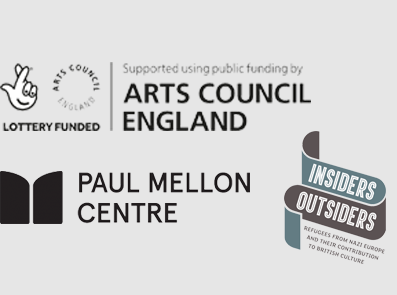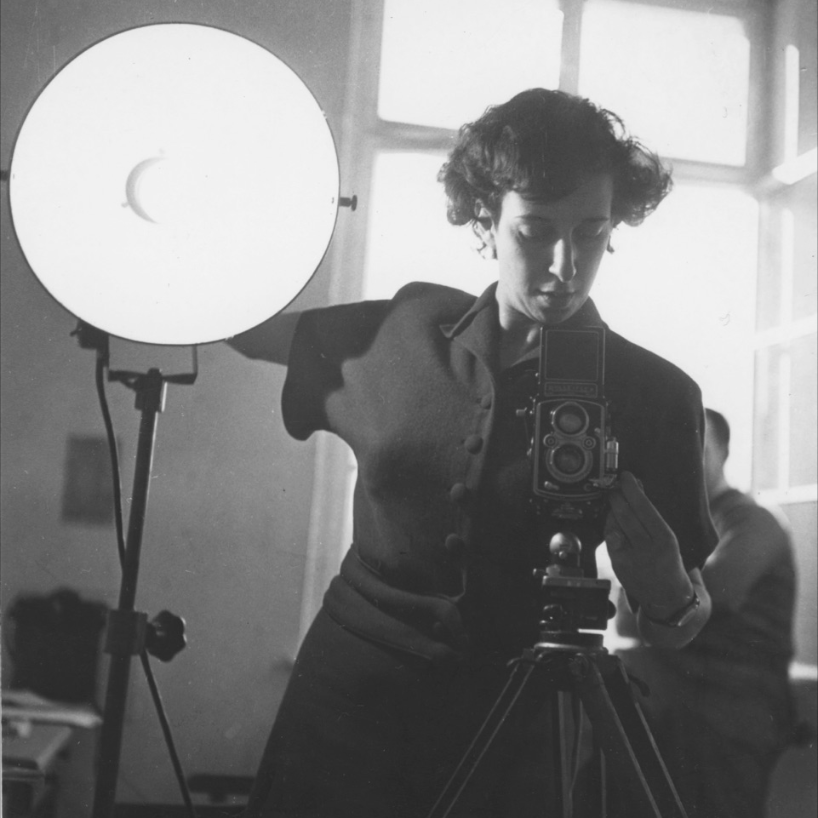03 MARCH - 03 OCTOBER 2020

Another Eye
Women Refugee Photographers in Britain after 1933

Discover the remarkable women who escaped Nazi persecution and helped to transform photography in Britain.
During the 1930s, over 70,000 refugees came to Britain from Nazi-dominated Europe. Amongst those escaping anti-Semitic persecution were a surprising number of women photographers.
Working across portraiture, fashion and reportage, these women brought modernist perspectives that opened up British photography in the decades that followed.
Another Eye brought together work by 17 of these women: Inge Ader, Dorothy Bohm, Anneli Bunyard, Elisabeth Chat, Gerti Deutsch, Laelia Goehr, Lisel Haas, Heidi Heimann, Elsbeth Juda, Hella Katz, Erika Koch, Betti Mautner, Lotte Meitner-Graf, Lucia Moholy, Gerty Simon, Edith Tudor-Hart and Lore Lisbeth Waller.
Some have become established photographers, others remain relatively unknown. This was the first UK exhibition to explore their collective influence upon visual culture in Britain.
PAST EVENTS
29 October 2020
Laelia Goehr: Photographer
Julia Crockatt in conversation with photographic researcher John March about her remarkable grandmother Laelia Goehr.
15 October 2020
Another Eye: Contemporary Women Photographers
Photographers Dragana Jurisic, Amak Mahmoodian and Eileen Perrier discussed how their personal histories of migration and exile have influenced their work.
11-13 September 2020
Another Eye: online conference
Our popular Another Eye conference explored the contribution of women refugee photographers who came to Britain after 1933. Further information
In association with Refugee Week 2020, we hosted a lively programme of online talks, in partnership with Insiders/Outsiders Festival and the Association of Jewish Refugees.
02 August 2020
Displaced Visions
Online discussion with Nissan Perez, former Curator of Photography at the Israel Museum, Jerusalem with photographic historian and curator Colin Ford CBE. Watch the recorded event
19 June 2020
The View from Our House: Film Screenings and Q&A
A film based upon the the memories, unsent letters and notebooks of young photographer Erika Koch, who witnessed the early years of National Socialism in Berlin. We screened the film online, ahead of a Q&A with directors Anthea Kennedy (niece of Erika Koch) and Ian Wiblin. Watch the Q&A
21 June 2020
Seeing Daylight: The Photography of Dorothy Bohm: Film Screening and Q&A
Released in 2018, Seeing Daylight is an intimate portrait of photographer Dorothy Bohm, who escaped Nazi Europe to spend a lifetime capturing humanity. We screened the film online, ahead of a discussion with director Richard Shaw, art historian Monica Bohm-Duchen (daughter of Dorothy Bohm), and photographer Marissa Roth. Watch the Q&A
26 June 2020
Tracking Edith: Film Screening and Q&A
Renowned photographer Edith Tudor-Hart is known for her emotive images of poverty in 1930s Vienna’s and London. She was also a Soviet spy. Tracking Edith explores the extent to which espionage shaped the life of Tudor-Hart. We screened the film online, ahead of a Q&A with filmmaker Peter Stephan Jungk and producer Lillian Birnbaum. Watch the Q&A
2 July 2020
Picture Stories: Rough Cut Preview
Director Rob West shared an exclusive rough-cut preview of his new film Picture Stories, ahead of a critical feedback session.
PARTNERS
This exhibition is curated by Four Corners with support from Katy Barron.
With grateful thanks to: Peter Ader, Archives & Collections at Library of Birmingham, Dorothy Bohm, Monica Bohm-Duchen, Bill Brandt Archive, Peter Bunyard, Julia Crockatt, Elegantly Papered, L’Equipment des Arts-Gallery, FOTOHOF archiv, Getty Images Hulton Archive, Anthea Kennedy, Lotte Meitner-Graf archive, National Portrait Gallery, Open Eye Gallery, Report Digital, Naomi and Uri Tal, Warburg Institute, Wiener Holocaust Library, Wien Museum, Dorothy Williams, the Wellcome Collection and John March.
Supported using public funding by the National Lottery through Arts Council England and the Paul Mellon Centre.
This exhibition is part of the Insiders/Outsiders Festival, which celebrates the contribution of refugees from Nazi Europe to British culture.